AITA for keeping a $300000 prize to myself when I originally planned to share it with my boyfriend?
Love and pa*sion collided when she stepped into a world he cherished deeply—a world of roaring engines and gleaming chrome. His dream was tangible, a beautifully restored Jaguar worth a fortune, tied to a cause bigger than themselves. Yet, beneath the thrill of the charity raffle, a quiet tension brewed, as their definitions of "ours" began to clash.
When fortune smiled upon her and the Jaguar became hers, the shimmering prize turned into a battleground of trust and ownership. His excitement twisted into a desperate plea for partnership, while she stood firm in her independence. What was meant to unite them now threatened to unravel the very fabric of their relationship.
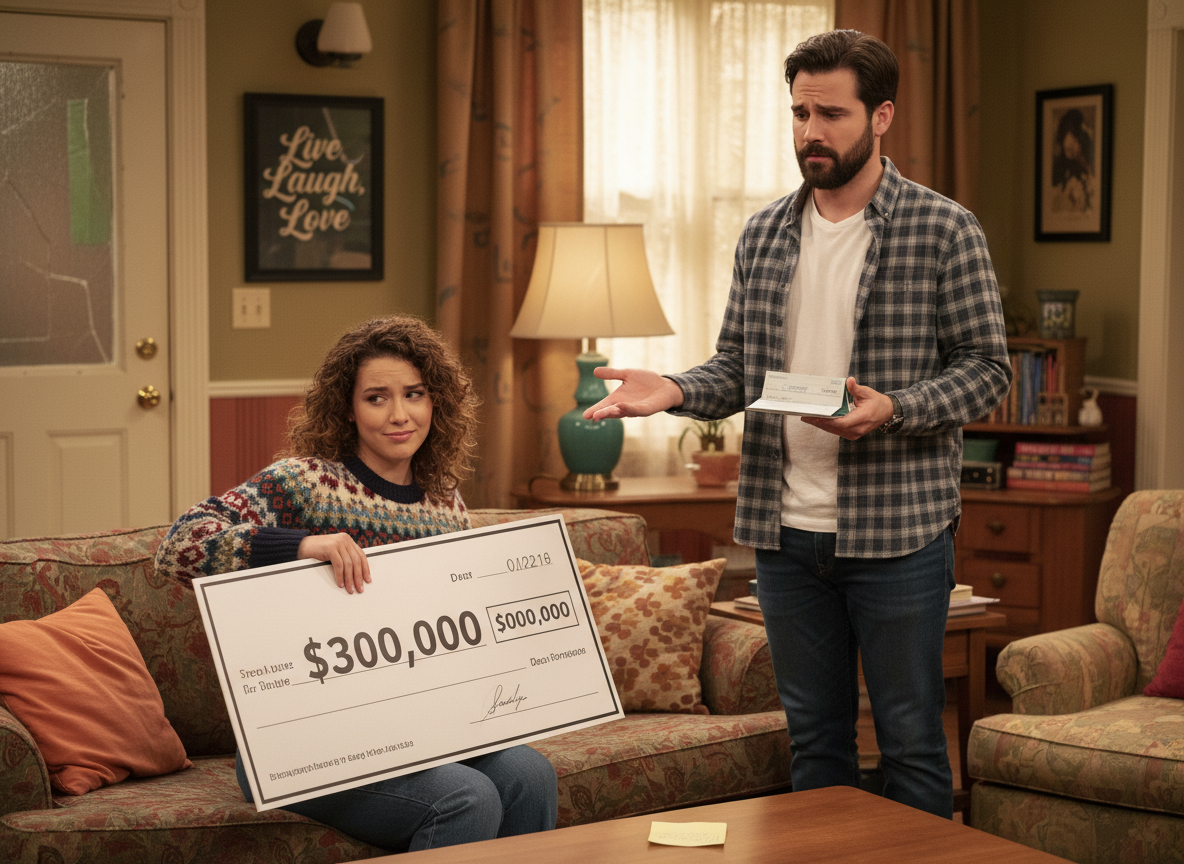

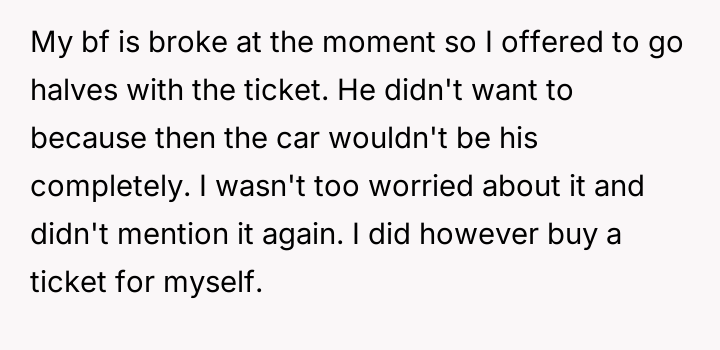

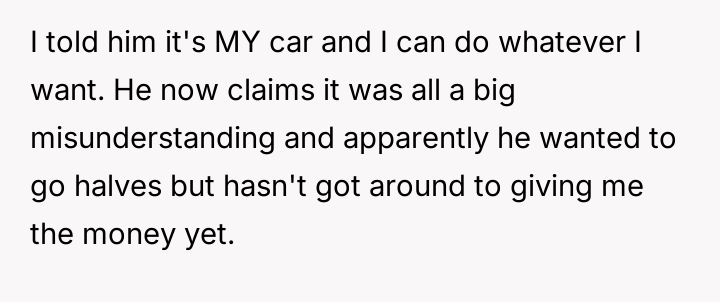
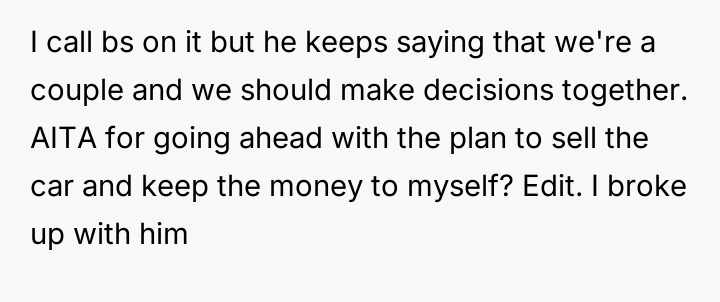
Subscribe to Our Newsletter
As renowned researcher Dr. Brené Brown explains, “Boundaries are the distance at which I can love you and me simultaneously.” This situation clearly illustrates a breakdown in establishing and respecting personal boundaries, complicated by financial expectations within the romantic partnership. The OP acted within her strict legal rights; since she purchased the ticket herself, the car is unequivocally her sole property. Her initial plan to sell the asset and retain 100% of the proceeds is consistent with this legal and financial reality. The boyfriend's reaction, claiming it is "OUR car" and demanding joint decision-making, suggests an implicit, unstated agreement that they would share major windfalls, or perhaps an expectation of shared financial responsibility that was never formalized. The boyfriend’s shift in narrative—from refusing to go halves initially to later claiming he intended to pay but hadn't—indicates an attempt to retroactively insert himself into the ownership structure to gain financial benefit from the OP's independent action. The OP's decision to sell and keep the money was appropriate based on her sole investment, but the relationship dynamic was clearly compromised by the differing expectations regarding shared vs. individual assets. Moving forward, couples must define financial boundaries explicitly, especially concerning high-value, non-jointly funded opportunities. The breakup, as noted in the edit, was likely an inevitable outcome when such fundamental disagreements over ownership and financial autonomy clash. The OP was justified in her actions regarding the asset itself. A constructive recommendation for future situations would be to clearly articulate ownership intent *before* entering potentially lucrative situations, even when a partner initially declines to participate, thereby preventing later claims of misunderstanding or shared entitlement.
THIS STORY SHOOK THE INTERNET – AND REDDITORS DIDN’T HOLD BACK.:
The thread exploded with reactions. Whether agreeing or disagreeing, everyone had something to say — and they said it loud.
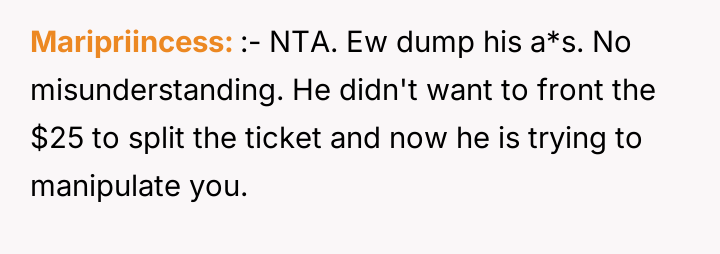
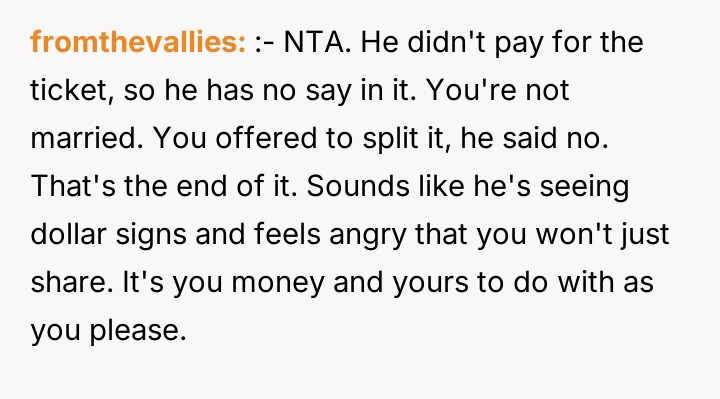
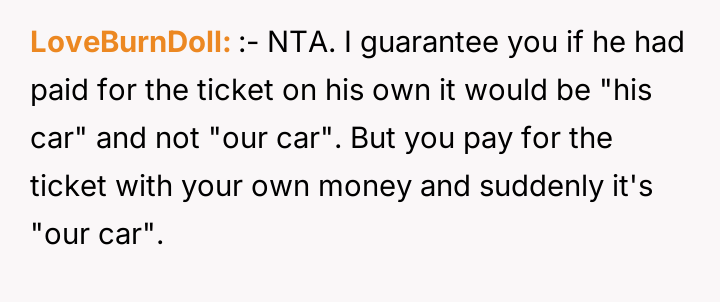
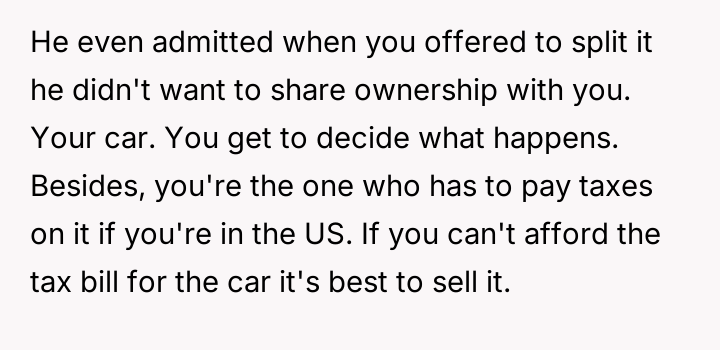

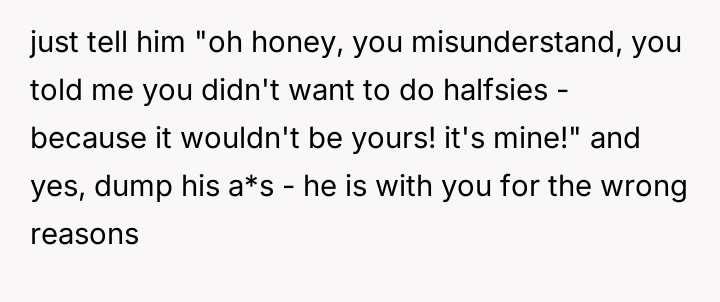
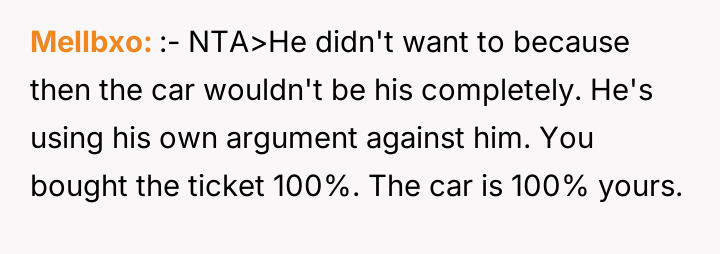

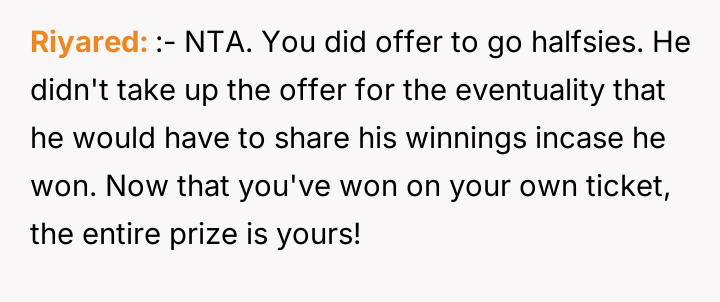


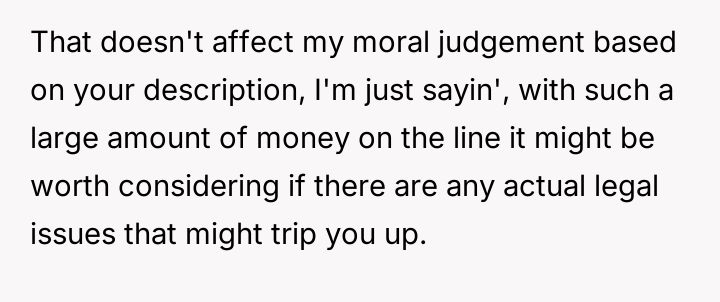
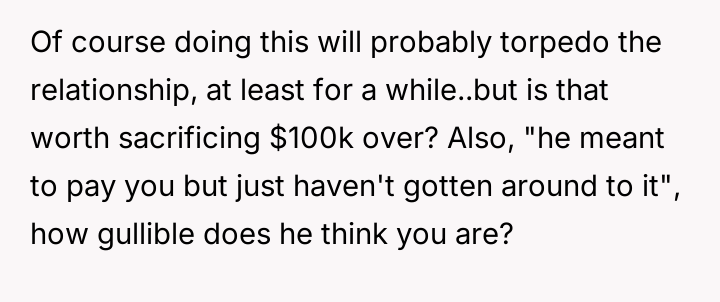
The original poster (OP) is facing a conflict where her boyfriend feels entitled to half of a valuable asset she won through a raffle ticket she purchased entirely on her own. The central disagreement revolves around ownership rights versus the expectation of joint decision-making in a relationship.
Given that the OP bought the ticket solely and intended to keep the winnings for herself, was she obligated to consult her partner on the decision to sell the car, or does sole ownership grant her the absolute right to manage the asset as she sees fit, regardless of his expectations?